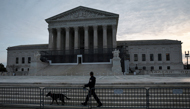Gas Tax Hike Fallout: California Gasoline Prices Set to Rise Again
▶ Stricter Environmental Regulations Next Month Could Push Prices Up by Up to 10 Cents per Gallon
▶ Drivers Seek Cheaper Gas Stations, Carpooling to Save Costs

According to the Los Angeles Times and other media, a gas tax increase effective July 1 will raise the tax by 1.6 cents per gallon, from 59.6 cents to 61.2 cents, as part of an annual inflation adjustment. A key factor in the price hike is the California Air Resources Board (CARB)’s approval last fall of an amended Low Carbon Fuel Standard (LCFS). This standard imposes additional costs on refineries producing high-carbon fuels to encourage lower carbon intensity.
These costs are likely to be passed on to consumers. Experts estimate an indirect price increase of 40 to 65 cents per gallon depending on market conditions. Retail gasoline prices in California are expected to rise by 5 to 10 cents per gallon after July 1, though fluctuations may occur based on crude oil markets, refinery output, and distribution networks.
Currently, California’s gasoline prices are over $1 per gallon higher than the national average, the highest in the U.S. Areas with limited access to electric vehicles or public transit, which rely heavily on gasoline, face heightened concerns about the added financial burden.
According to the American Automobile Association (AAA), the average price for regular gasoline in California is $4.65 per gallon, with premium gasoline at $5.05 per gallon. Prices have been steadily rising, exacerbated by global oil price increases due to Middle East tensions, including the U.S.’s direct attack on Iran. This trend is expected to continue.
To cope, drivers, including Korean Americans, are taking steps to reduce fuel costs. Many are searching for cheaper gas stations, carpooling, or considering switching to electric or hybrid vehicles. James Jang, a commuter from Fullerton to LA’s Koreatown, said, “With gas prices nearing $5 per gallon, I feel a significant financial strain each month.
I’ve started carpooling to use the HOV lane and plan to switch to a hybrid vehicle soon.”
The regulatory changes have sparked heated political debate. Republican State Senator Brian Jones (San Diego) introduced a bill (SB 2) to block CARB’s new standards but it was defeated 10-23 in a Senate vote on June 4. Jones criticized the policy, stating, “Amid ongoing inflation, this places a heavy burden on working-class and low-income residents, especially in areas with limited public transit access.”
Democrats, however, emphasize the need for climate action. Senate Majority Leader Lena Gonzalez called the policy “essential for a sustainable future,” highlighting its role in accelerating the transition to cleaner fuels and reducing greenhouse gas emissions. CARB stated it is “monitoring potential market shocks and exploring ways to ease consumer burdens.”
While the gas tax and new regulations will take effect July 1, the price increase is expected to be less severe than earlier fears of a 65-cent-per-gallon spike reported by some media and social media. The actual retail price will depend on state and industry responses, crude oil trends, and seasonal demand, which typically rises in summer due to increased travel.
By Sehee Roh
스마터리빙
more [ 건강]
[ 건강]이제 혈관 건강도 챙기자!
[현대해운]우리 눈에 보이지 않기 때문에 혈관 건강을 챙기는 것은 결코 쉽지 않은데요. 여러분은 혈관 건강을 유지하기 위해 어떤 노력을 하시나요?
 [ 건강]
[ 건강]내 몸이 건강해지는 과일궁합
 [ 라이프]
[ 라이프]벌레야 물럿거라! 천연 해충제 만들기
 [ 건강]
[ 건강]혈압 낮추는데 좋은 식품
[현대해운]혈관 건강은 주로 노화가 진행되면서 지켜야 할 문제라고 인식되어 왔습니다. 최근 생활 패턴과 식생활의 변화로 혈관의 노화 진행이 빨라지고
사람·사람들
more많이 본 기사
- 美, 75개국 국민에 이민비자 중단… “美에 부담주는 나라 대상”
- 美, 이란 곧 들어가나… “24시간 내 개입 가능성” 관측
- 美-덴마크·그린란드, 백악관서 고위급 회담… “근본적인 이견”
- 대법, ‘트럼프 관세’ 위법여부 14일에도 선고 안해
- 카페 총기난사 한인, 교도소서 피살
- “中세관, 엔비디아 H200 통관금지 지시”…대미협상 카드 가능성
- 박나래 前 매니저 “변호사가 시켰다고 말한 적 없어..내달 美서 귀국” [인터뷰]
- 덴마크, 美회담 앞 “그린란드 주둔군 확대”…스웨덴도 병력 파견
- 현주엽, 충격 근황 “온 가족 정신과 약 복용..子 농구 그만둬”[아빠하고]
- [집중진단/ 복수국적법 절차 문제도 심각] 국적이탈 수속에 2년이나 걸리다니
- 당국, 국방부 기밀유출 사건 관련해 WP기자 자택 압색
- 한동훈 제명에 갈등 최고조…張-韓 ‘사생결단 충돌’ 극한분열
- “뉴욕주민 생활비 부담 확 줄이겠다” 1
- 베네수, ‘마두로 비판’ 앞장섰던 언론인·재야 활동가 석방
- 새로 나온 이상한 식품 피라미드
- 가주서 ‘스크래처 복권’ 잭팟 대박 잇따라
- 尹 선고형량은…법조계 “유죄시 중형 불가피, 사형 가능성도”
- 캘리포니아 검찰, 머스크의 xAI ‘딥페이크 생성’ 조사
- ‘옵티머스’ 전 대표 이혁진씨 LA서 사망
- 상·하원서 ‘나토 영토 점령·합병 저지’ 법안 발의
- “팰팍 재정적자 주민들에 전가될 판”
- “미국인에 사기친 귀화이민자 시민권 박탈”
- 한국 U23 아시안컵 8강 상대 ‘호주’ 확정... 중국은 D조 2위 진출
- 이재성이 마인츠 살렸다! 2경기 연속 ‘미친 택배’ 도움... 마인츠, 하이덴하임 잡고 드디어 ‘꼴찌 탈출’
- 재무, 원화 약세에 구두개입… “韓 경제 펀더멘털과 부합 안해”
- 뉴저지주 ‘안티 ICE(이민자 단속 제한법안)’법안 시행 초읽기
- 북VA 남성, 명품시계 가로채려다 경찰에 덜미
- 연방의회서 “한인 위상·한미동맹 제고” 한목소리
- 알라딘 서점, 이달말 마당 매장 폐점
- 트럼프 “그린란드, 골든돔에 필수…美 아니면 中·러가 가질 것”
- [데이빗 이그나티우스 칼럼] 그린란드에 대한 트럼프의 위험한 집착
- “트럼프 사위·특사, 종전협상 교착 속 모스크바 방문 추진”
- 9월 MD해산물 축제, 마마 덕 상륙
- ‘활동중단’ 박봄, SNS 활동ing..건강해진 얼굴색 ‘눈길’
- [미국은 지금] 침팬지의 그루밍과 인간의 민주주의
- “고소득사업자 위한 절세전략 정보”
- 뉴저지도 1회용 식기류 제공 금지 눈앞
- ‘트럼프 관세정책 역설’… 물가 보다 일자리 ‘직격탄’
- 경찰, 김병기 압수수색 했지만…금고 못찾고 아이폰은 잠겨
- 뉴저지한인회, 제123주년 미주한인의날 기념식
- ‘내란 우두머리’ 윤 전 대통령에 사형 구형
- 월남전 전우산악회 신년하례
- 변우석→이유미 소속사 “명예훼손·성희롱·인신공격 법적 대응..선처 없다”
- [만화경] ‘구리 박사’ 은퇴설
- [수요 에세이] 문화강국
- 한동훈 제명에 갈등 최고조…張-韓 ‘사생결단 충돌’ 극한분열
- OC서 ICE 항의 시위 남성 “사망할 뻔”
- 한미은행, 기술보증기금과 MOU 체결
- 응시의 변천사… 디지털 시대의 인물화
- 2028 LA 올림픽 티켓 구입절차 공식 돌입
1/5지식톡

-
 한국 안경을 무료 배송으로 받아보실…
0
한국 안경을 무료 배송으로 받아보실…
0안녕하세요. 서울 안암동에 위치한 ‘보고싶다 안경원’입니다.저희는 다년간 한국 고객분들께 착용감 좋은 안경테와 한국안경브랜드,고압축 도수 렌즈를 합리적인 가격에 제공해온 안경 전문점입니다.이번에 해외 배송이 가능해…
-
 미 육군 사관학교 West Poin…
0
미 육군 사관학교 West Poin…
0https://youtu.be/SxD8cEhNV6Q연락처:wpkapca@gmail.comJohn Choi: 714-716-6414West Point 합격증을 받으셨나요?미 육군사관학교 West Point 학부모 모…
-
 ☝️해외에서도 가능한 한국어 선생님…
0
☝️해외에서도 가능한 한국어 선생님…
0이 영상 하나면 충분합니다!♥️상담신청문의♥️☝️ 문의 폭주로 '선착순 상담'만 진행합니다.☎️ : 02-6213-9094✨카카오톡ID : @GOODEDU77 (@골뱅이 꼭 붙여주셔야합니다…
-
 테슬라 자동차 시트커버 장착
0
테슬라 자동차 시트커버 장착
0테슬라 시트커버, 사놓고 아직 못 씌우셨죠?장착이 생각보다 쉽지 않습니다.20년 경력 전문가에게 맡기세요 — 깔끔하고 딱 맞게 장착해드립니다!장착비용:앞좌석: $40뒷좌석: $60앞·뒷좌석 …
-
 식당용 부탄가스
0
식당용 부탄가스
0식당용 부탄가스 홀세일 합니다 로스앤젤레스 다운타운 픽업 가능 안녕 하세요?강아지 & 고양이 모든 애완동물 / 반려동물 식품 & 모든 애완동물/반려동물 관련 제품들 전문적으로 홀세일/취급하는 회사 입니다 100% …
케이타운 1번가
오피니언
 정숙희 논설위원
정숙희 논설위원새로 나온 이상한 식품 피라미드
 데이빗 이그나티우스 워싱턴포스트 칼럼니스트
데이빗 이그나티우스 워싱턴포스트 칼럼니스트 [데이빗 이그나티우스 칼럼] 그린란드에 대한 트럼프의 위험한 집착
 김동찬 시민참여센터 대표
김동찬 시민참여센터 대표 [미국은 지금] 침팬지의 그루밍과 인간의 민주주의
 이명숙 수필가
이명숙 수필가 [수요 에세이] 문화강국
 신경립 / 서울경제 논설위원
신경립 / 서울경제 논설위원 [만화경] ‘구리 박사’ 은퇴설
 노세희 부국장대우·사회부장
노세희 부국장대우·사회부장 먼로 독트린과 돈로 독트린
 민경훈 논설위원
민경훈 논설위원트렌턴, 멜로스, 시실리, 레욱트라
 한형석 사회부 부장대우
한형석 사회부 부장대우 LA 시장 선거 구도와 선택지
 정유환 수필가
정유환 수필가 [화요칼럼] 어머님 전(前) 상서
1/3지사별 뉴스

“뉴욕주민 생활비 부담 확 줄이겠다”
▶ 자동차·주택 보험료, 공공요금 인하뉴욕주가 무상보육 확대와 임차인 보호, 공공요금 규제 강화 등을 올해 주요 역점 정책으로 정하고 뉴욕주민…
‘내란 우두머리’ 윤 전 대통령에 사형 구형

연방의회서 “한인 위상·한미동맹 제고” 한목소리
한인 이민자들이 미국에 도착한 123주년을 기념하고 한인들의 미국 사회에의 기여를 알리는 ‘제 21회 미주 한인의 날’ 행사가 13일 연방의회…
한국학교 방향성 재정립 모색

트럼프 “美시민에 사기친 귀화 이민자, 국적 불문 시민권 박탈”
도널드 트럼프 대통령은 13일 “소말리아든 어디 출신이든, 귀화 이민자 중 우리 시민들을 상대로 사기를 쳐 유죄 판결을 받으면 시민권을 박탈할…
살림으로 뿌리내리다- 테이크루트 안미정 대표의 요리 이야기 (9)




















































.png)


댓글 안에 당신의 성숙함도 담아 주세요.
'오늘의 한마디'는 기사에 대하여 자신의 생각을 말하고 남의 생각을 들으며 서로 다양한 의견을 나누는 공간입니다. 그러나 간혹 불건전한 내용을 올리시는 분들이 계셔서 건전한 인터넷문화 정착을 위해 아래와 같은 운영원칙을 적용합니다.
자체 모니터링을 통해 아래에 해당하는 내용이 포함된 댓글이 발견되면 예고없이 삭제 조치를 하겠습니다.
불건전한 댓글을 올리거나, 이름에 비속어 및 상대방의 불쾌감을 주는 단어를 사용, 유명인 또는 특정 일반인을 사칭하는 경우 이용에 대한 차단 제재를 받을 수 있습니다. 차단될 경우, 일주일간 댓글을 달수 없게 됩니다.
명예훼손, 개인정보 유출, 욕설 등 법률에 위반되는 댓글은 관계 법령에 의거 민형사상 처벌을 받을 수 있으니 이용에 주의를 부탁드립니다.
Close
x